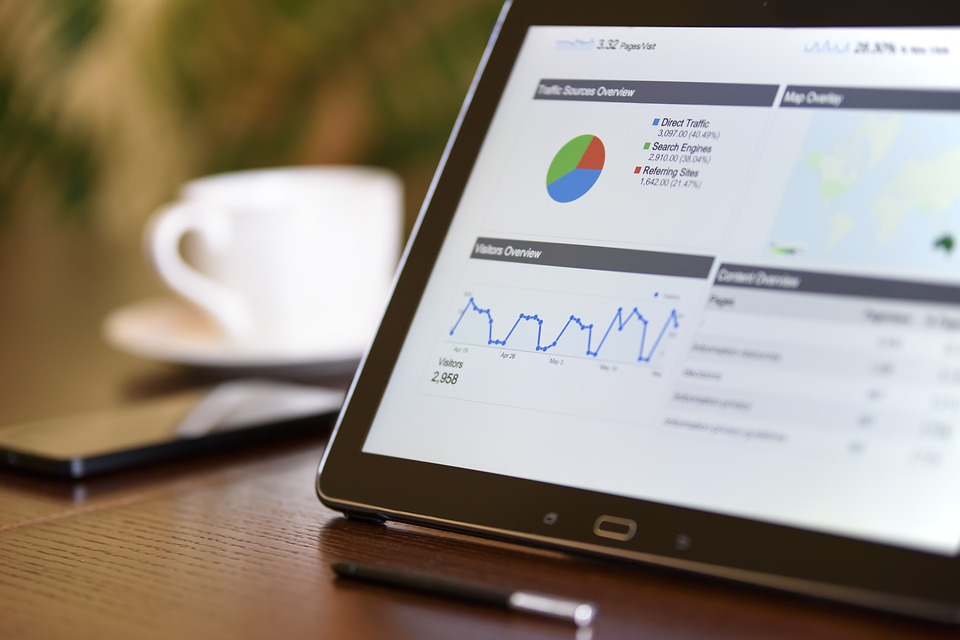Competing for online business in 2017 is fierce. The marketplace is crowded, with thousands of different companies jostling for position across hundreds of different industries. In the cluttered landscape of e-commerce, the most crucial advantages for you and your business will come from SEO services, using specially-designed tools such as Google Analytics, Alexa and PageRank. SEO in 2017 is primary to online success, yet it’s surprising how many people are only vaguely familiar (or indeed, even unfamiliar) with the term. It stands for Search Engine Optimisation, and basically translates to how visible your product or site is when people search for key words and phrases over search engines such as Google and Yahoo.
Ideally, of course, you want to be on the first page of returned results, as near to the top as you can be. Fair enough, you might say – now that I know what it is, how do I measure it? How can I keep track of it? And ultimately, how can I improve it if it’s not doing so great? Well, there’s a few ways, and it pays to know as much about them as you can. The two main competitors in the analytics market come from two giants of internet enterprise: Google and Amazon, both trustworthy names who’ve been doing digital business for a very long time. Their SEO services are Google Analytics and Alexa Internet respectively, and learning about both of them will make sure you can take full advantage of the tools they offer you. So, who do you turn to for the most reliable SEO services?

Google Analytics, Alexa and PageRank are crucial in optimising your website’s SEO.
Google Analytics tracks and reports website traffic, and is offered on a freemium basis; that is, the base product is free, but there is also paid content on offer within the interface. It’s the most popular web analytics server currently out there, and has been on the market for twelve years and counting. There’s a certain amount of assurance that comes from Google-branded software; they are, for many people, the gateway to the entire internet, so one would assume that their analytics can be trusted as the best in the business. Apparently many people agree, as just under half of the top 1,000,000 websites use Google Analytics.
Their interface is set up like a dashboard, which functions at a casual level, but has the opportunity to go into deeper statistics if the user requires. It can examine where visitors to a site came from, where their geographical location is and how long they hung around on the page. It also utilises a handy little infographic called funnel visualisation, which makes it easy to see how far visitors progressed into your site; for example, out of a pool of visitors, how many actually went all the way to completing a purchase. It’s a handy, uncomplicated way for website owners to get simple statistics on their site’s performance, and see if it meets, falls below or far exceeds their expectations.
Alexa, on the other hand, is a little different. It is a separate company, but a wholly-owned subsidiary of Amazon.com. It was first established in 1996 and purchased by the forward-thinking Amazon in 1999. Alexa also utilises a toolbar interface, but sends the data it collects back to the Alexa mothership website and generates reports for its customers based on these numbers. While Google Analytics is concerned solely with a single site’s performance, Alexa measures that performance against other sites of the same nature and lets you know where you stand in those rankings. However, there is a major difference in the way they operate. Google Analytics compiles data from any and every user that crosses a website’s threshold; Alexa only collects data from those who have the Alexa toolbar installed.

Although all three are important, Google Analytics is generally more useful than Alexa and PageRank.
Fundamentally, though both tools provide SEO services, they are two different things providing two different set of results. Google Analytics is great to get a read on overall traffic and how well your site is doing in general terms; however, if you want to compare yourself with competitors in the same industry, Alexa is more viable as it records that specific kind of data. Adding further confusion to the mix is Google’s PageRank, which is one of the main algorithms that Google uses to rank their search results on their home page, i.e. PageRank is used to quantify what the average internet user sees when he/she searches for something on Google.
The exact algorithm for PageRank is startlingly complex, and you don’t need to go into the nitty-gritty math of it. Last year, Google removed the PageRank score (a score between one and ten, dependent on a website’s popularity) from the Google toolbar, stating their intention to use it as an internal device only. As it stands in 2017, PageRank should not be a major concern; the best approach to heightening your website’s visibility and maximising your SEO is using Google Analytics as your primary tool, in conjunction with Alexa for specific data and statistics. Both are simple to get your head around, and once you understand the basic numbers, you won’t need to go too far into either to get a handle on how well your website is performing. Keeping on top of digital traffic is one of things that will help your e-commerce site stay ahead of the competition; Google Analytics and Alexa are simply SEO services which will help you achieve that.





